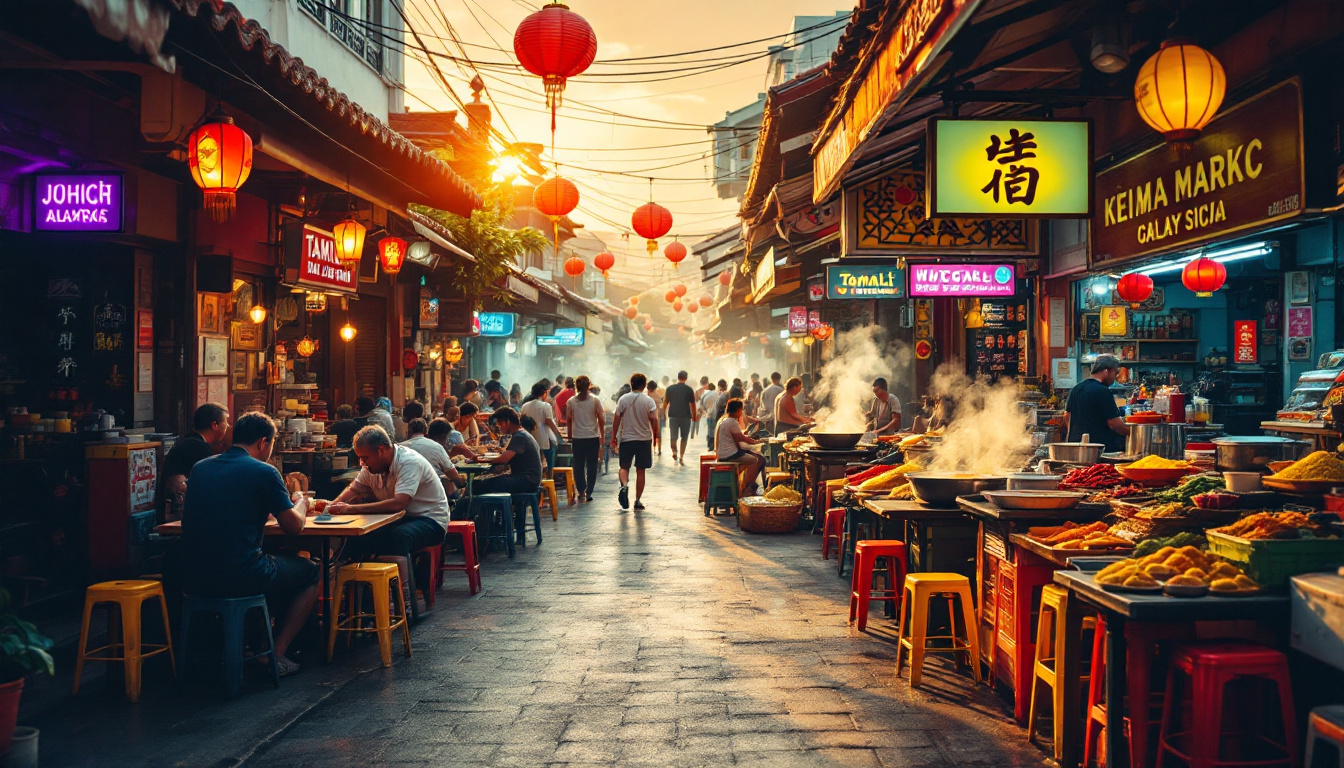When I crossed the causeway from Singapore into Johor Bahru last year, I expected just another border town pit stop. Instead, I discovered Malaysia’s best-kept secret: a vibrant cultural melting pot offering everything Singapore delivers, but for 50% less cost and without the suffocating crowds.
While 350,000 daily commuters rush between these neighboring cities, most miss JB’s authentic charm entirely. They’re focused on Singapore’s glittering skyline, unaware that just minutes away lies a destination with richer cultural diversity, genuine local experiences, and prices that won’t devastate your travel budget.
The numbers tell an extraordinary story. JB costs 67% less than Singapore overall, with accommodation running 70-82% cheaper and food prices nearly half of what you’d pay across the border. Yet the cultural experiences rival anything Singapore offers, wrapped in Malaysia’s warm hospitality and authentic neighborhood atmosphere.
The cultural richness Singapore commercialized away
Authentic multicultural neighborhoods thriving naturally
Unlike Singapore’s carefully curated ethnic quarters, JB’s cultural diversity evolved organically over centuries. The Chinese Heritage Museum sits beside centuries-old temples, while Indian spice merchants operate from the same shophouses their grandparents established. You’ll hear Hokkien, Tamil, Bahasa Malaysia, and English flowing naturally in conversations, creating the multicultural symphony Singapore’s tourism board tries desperately to recreate.
Royal heritage sites without tourist bus invasions
The magnificent Sultan Abu Bakar State Mosque welcomes respectful visitors to witness authentic Islamic architecture and daily prayers. Nearby, Istana Besar offers insights into Johor’s royal heritage without Singapore’s museum-like sterility. These aren’t attractions performing for tourists—they’re living cultural sites where locals still gather, pray, and celebrate.
The economic advantages that change everything
Accommodation that doesn’t bankrupt your trip
A city center apartment in JB costs approximately 596 SGD monthly compared to Singapore’s staggering 4,056 SGD—a 580% difference that extends to hotel rates. Boutique accommodations offering genuine Malaysian hospitality cost less than Singapore’s budget hostels, while luxury options remain accessible to middle-class travelers.
Food experiences at prices that encourage exploration
JB’s hawker centers serve authentic char kway teow, laksa, and roti canai at 49% lower prices than Singapore equivalents. But here’s the difference: these aren’t tourist-targeted food courts. Local families gather here nightly, sharing recipes passed down through generations while Tamil aunties argue good-naturedly with Hokkien uncles about the best curry preparation.
The accessibility advantage nobody talks about
Border crossing improvements transforming travel
The upcoming Johor Bahru-Singapore Rapid Transit System, 77% complete as of 2024, promises 15-minute train connections by late 2026. Current infrastructure improvements include air-conditioned walkways and additional processing lanes, making cross-border travel increasingly comfortable despite handling over 70 million annual crossings.
Currency exchange creating incredible value
The favorable SGD-MYR exchange rate of approximately 1:3.2 amplifies purchasing power dramatically. Singapore residents regularly cross for grocery shopping, saving hundreds monthly on identical products. For international travelers, this means stretching budgets 200-300% further while accessing the same quality goods and services.
The authentic experiences mass tourism hasn’t discovered
Local markets operating without tourist performance
Pasar Karat weekend markets buzz with genuine local life—families selecting fresh produce, elderly men playing xiangqi, children weaving between stalls speaking three languages fluently. These aren’t staged cultural performances but real community gathering spaces where visitors experience Malaysian life authentically.
Cultural festivals celebrated by communities, not tourism boards
During Deepavali, Tamil families invite curious visitors to share homemade sweets. Chinese New Year celebrations spill from shophouses onto streets without cordoned tourist viewing areas. Hari Raya gatherings welcome respectful guests to experience Malaysian Islamic culture firsthand, creating genuine cultural exchange impossible in commercialized settings.
JB represents Southeast Asia’s sweet spot: accessibility without overcrowding, cultural authenticity without tourist theater, and economic advantages that transform travel budgets from constraints into opportunities. The upcoming RTS connection will inevitably increase visitor numbers, but for now, this Malaysian gem offers Singapore’s multicultural richness with the warmth, affordability, and authenticity that mass tourism erodes.
Visit before the secret spreads. Experience the Malaysia that Singapore’s tourism success story left behind—richer, warmer, and infinitely more affordable than its famous neighbor.
Planning your JB cultural adventure
When should I visit Johor Bahru for the best experience?
February through November offers ideal weather, avoiding monsoon season while ensuring cultural sites and markets operate normally. Weekdays provide the most authentic local atmosphere with fewer weekend cross-border shoppers.
How much money can I realistically save compared to Singapore?
Expect overall savings of 50-70% on accommodation, food, and transportation. A Singapore hotel costing 200 SGD nightly equals roughly 60-80 SGD in JB for comparable quality, while meals cost 3-8 MYR versus Singapore’s 15-25 SGD equivalent.
Is the border crossing really manageable for tourists?
Yes, despite high volume, the process is efficient. Peak hours (7-9 AM, 6-8 PM) see heavy commuter traffic, but midday crossings typically take 20-45 minutes. The upcoming RTS system will reduce this to 15 minutes by 2026.
What cultural etiquette should I observe in JB?
Dress modestly when visiting religious sites, remove shoes before entering mosques and temples, and show respect during prayer times. Learning basic Bahasa Malaysia greetings like “terima kasih” (thank you) demonstrates cultural appreciation locals warmly acknowledge.
Can I use Singapore dollars in Johor Bahru?
Many establishments accept SGD but offer poor exchange rates. Convert to Malaysian Ringgit at money changers for better value, or use credit cards with favorable international exchange rates for optimal purchasing power.
